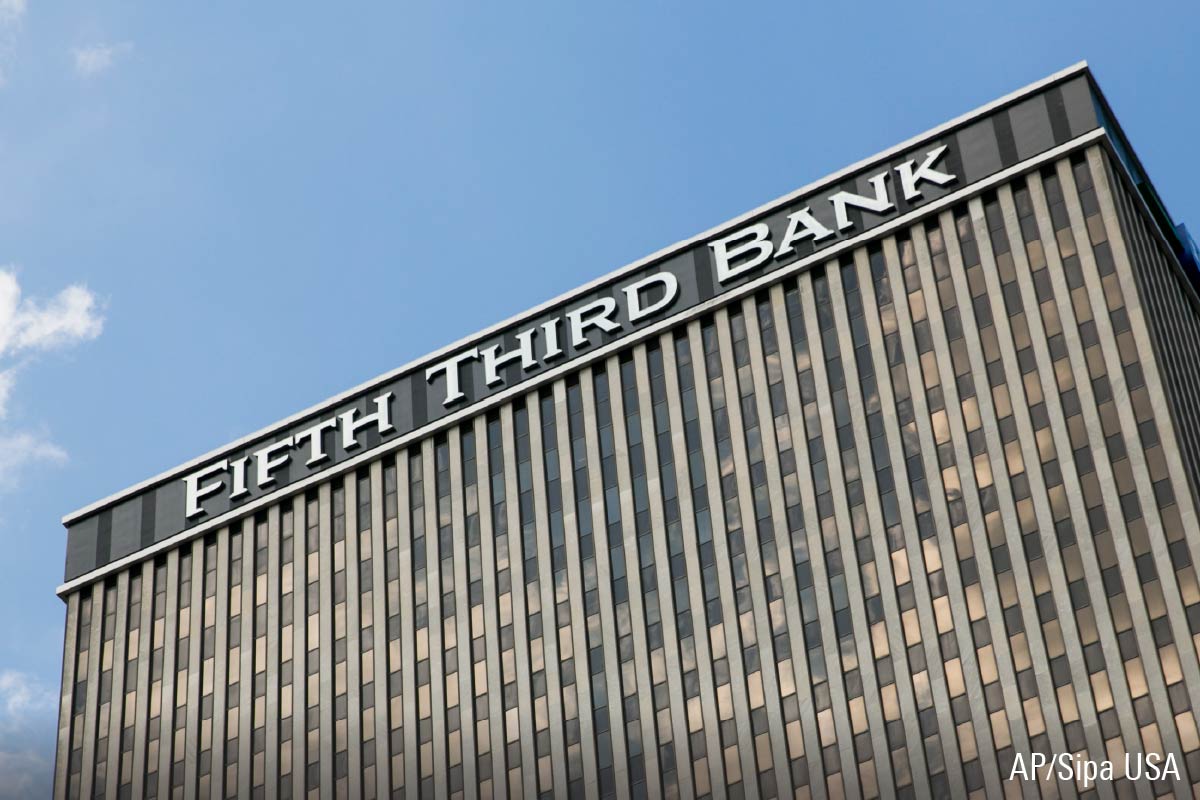Fifth Third Earnings: Net Interest Income Outlook Softens
We anticipate our fair value estimate for the bank’s stock may fall slightly, but that it would remain undervalued.

Fifth Third Bancorp Stock at a Glance
- Fair Value Estimate: $39
- Morningstar Rating: 4 stars
- Morningstar Uncertainty Rating: High
- Morningstar Economic Moat Rating: None
Fifth Third Bancorp Earnings Update
Fifth Third Bancorp FITB reported second-quarter earnings per share of $0.82, missing the FactSet consensus and our own estimate of $0.88. The miss was largely driven by weaker net interest income, or NII, of $1.46 billion compared with our estimate of $1.50 billion, along with slightly lower fees and slightly higher expenses.
Higher funding costs have been a common pattern for the regional banks this quarter, and Fifth Third was no exception, as it reduced its NII outlook to up 3%-5% from up 7%-10% last quarter and also raised its deposit cost estimates. While we were already at the lower end of the previous guidance range, projecting a 7% increase for the full year, we now expect to dial back our NII projections a bit more. As we think ahead, we are hoping NII will bottom out in the fourth quarter and may even be somewhat resistant to rate cuts in 2024 if they happen.
Management slightly lowered guidance on fees to stable from stable to up 1% and also maintained noninterest expense growth expectations at up 4%-5%. Our projections were already within these updated ranges, so we don’t expect any material updates to our expectations. As we factor in higher funding costs, softer loan demand, and lower NII, we anticipate our current fair value estimate of $39 per share may fall by a low- to mid-single-digit percentage, but would still expect to view the shares as undervalued.
Fifth Third grew its deposit base by 1% sequentially, which we consider good news, as many of its regional peers reported slight deposit declines. A material amount of this growth continues to come from higher-cost balances, given the mix shift toward interest-bearing balances. Even so, in the current environment, we’d rather see deposit growth and the paydown of short-term borrowings. The next test will be how much the bank can keep growing deposits and how much pricing it can get back on deposits if rate cuts do occur.
The author or authors do not own shares in any securities mentioned in this article. Find out about Morningstar’s editorial policies.

/s3.amazonaws.com/arc-authors/morningstar/e03383eb-3d0b-4b25-96ab-00a6aa2121de.jpg)
/cloudfront-us-east-1.images.arcpublishing.com/morningstar/ZI3W4F3IORA73KFWC7VAFNOJJ4.jpg)
/cloudfront-us-east-1.images.arcpublishing.com/morningstar/CWMPLAZER5HFBGFDFB45VCOUHI.png)
/cloudfront-us-east-1.images.arcpublishing.com/morningstar/VCYGUEZEV5DA3PVEIJNCMYA7AU.jpg)
:quality(80)/s3.amazonaws.com/arc-authors/morningstar/e03383eb-3d0b-4b25-96ab-00a6aa2121de.jpg)